閉じる
SDGsの取り組み
- HOME
- SDGsの取り組み
持続可能な開発目標とは、2015年に国連サミットで193の加盟国により、「持続可能な開発のための2030」が掲げられた国際的な目標であり、17の目標が掲げられております。
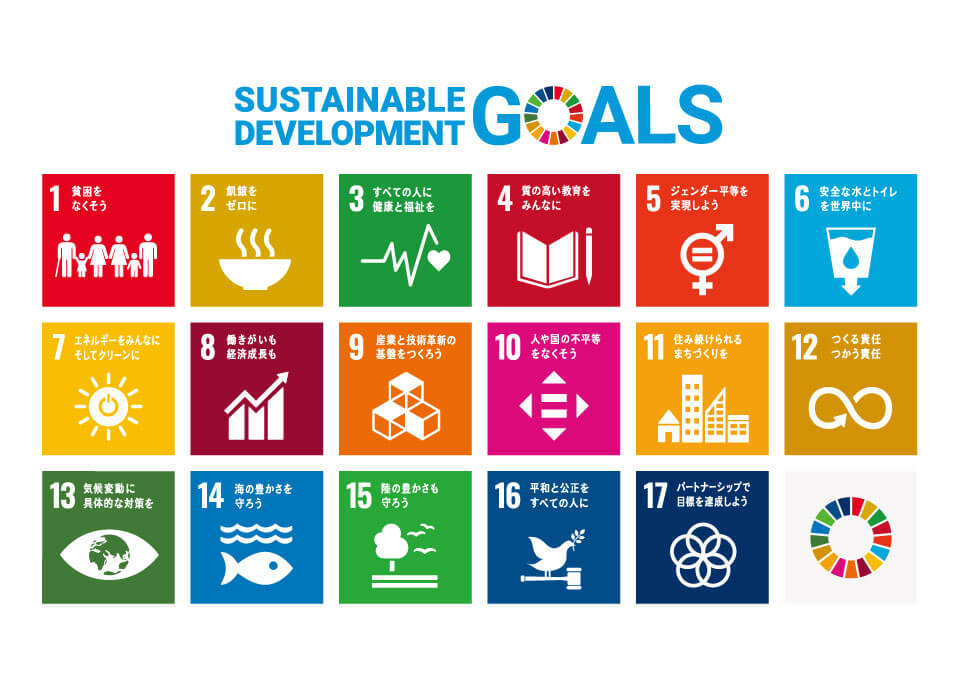
- 1. 貧困の撲滅
- 2. 飢餓撲滅、食料安全保障
- 3. 健康・福祉
- 4. 万人への質の高い教育、生涯学習
- 5. ジェンダー平等
- 6. 水・衛生の利用可能性
- 7. エネルギーへのアクセス
- 8. 包摂的で持続可能な経済成長、雇用
- 9. 強靭なインフラ、工業化・イノベーション
- 10. 国内と国家間の不平等の是正
- 11. 持続可能な都市
- 12. 持続可能な消費と生産
- 13. 気候変動への対処
- 14. 海洋と海洋資源の保全・持続可能な利用
- 15. 陸域生態系、森林管理、砂漠化への対処、生物多様性
- 16. 平和で包摂的な社会の促進
- 17. 実施手段の強化と持続可能な開発のためのグローバル・パートナーシップの活性化

サスティナブル・ブランド「CANNATUREL」として、169のターゲットの内、
6つの具体的ターゲットに対して目標を設定し、事業活動を推進してまいります。
-
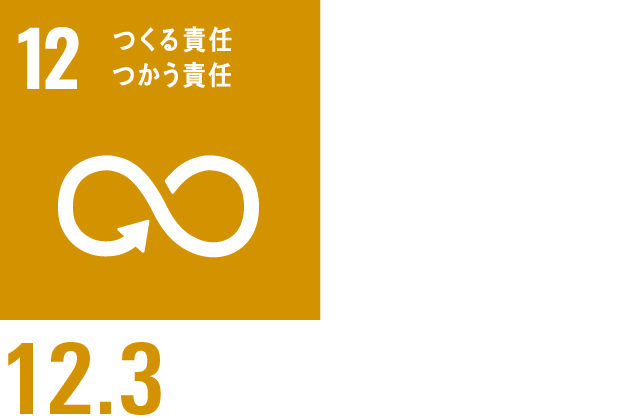
2030年までに小売・消費レベルにおける世界全体の一人当たりの食料の廃棄を半減させ、収穫後損失などの生産・サプライチェーンにおける食品ロスを減少させる。
By 2030, halve per capita global food waste at the retail and consumer levels and reduce food losses along production and supply chains, including post-harvest losses
-
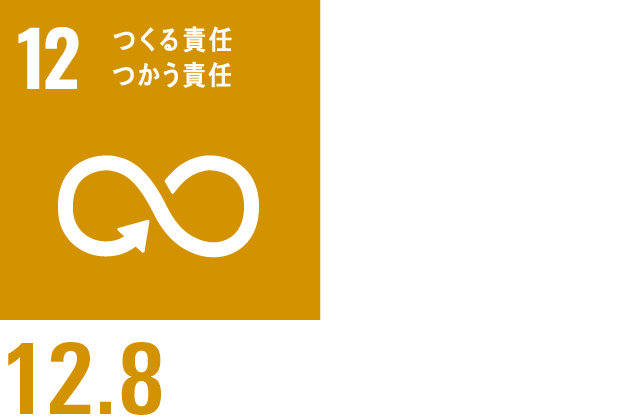
2030年までに、人々があらゆる場所において、持続可能な開発及び自然と調和したライフスタイルに関する情報と意識を持つようにする。
By 2030, ensure that people everywhere have the relevan information and awareness for sustainable development and lifestyles in harmony with nature
-
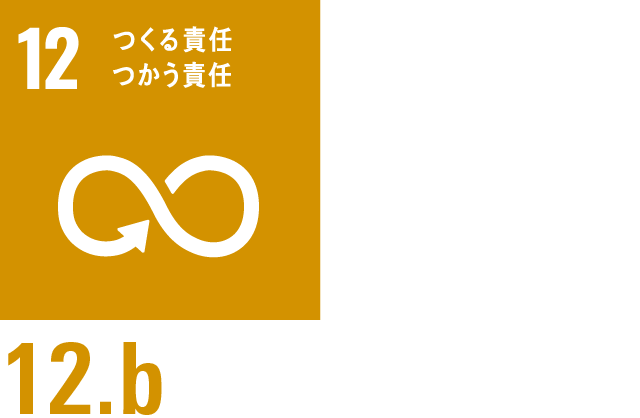
持続可能な開発が雇用創出、地元の文化・産品の販促につながる持続可能な観光業にもたらす影響のモニタリングツールを開発・導入する。
Develop and implement tools to monitor sustainable development impacts for sustainable tourism that creates jobs and promotes local culture and products
-
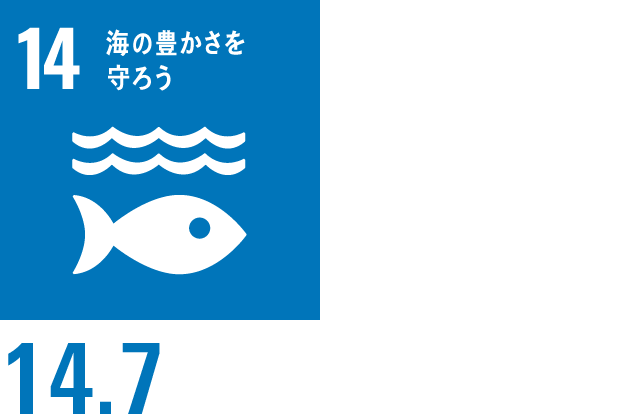
2030年までに、漁業、水産養殖及び観光の持続可能な管理などを通じ、小島嶼開発途上国及び後発開発途上国の海洋資源の持続的な利用による経済的便益を増大させる。
By 2030, increase the economic benefits to small island developingStates and least developed countries from the sustainable use of marine resources, including through sustainable management offisheries, aquaculture and tourism
-
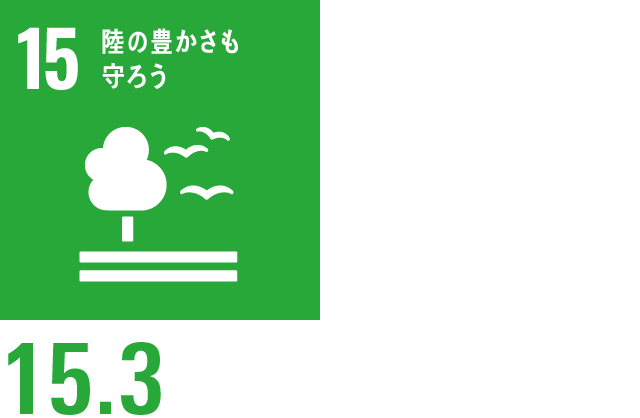
2030年までに、砂漠化に対処し、砂漠化、干ばつ及び洪水の影響を受けた土地などの劣化した土地と土壌を回復し、土地劣化に荷担しない世界の達成に尽力する。
By 2030, combat desertification, restore degraded land and soil, including land affected by desertification, drought and floods, and strive to achieve a land degradation-neutral world
-
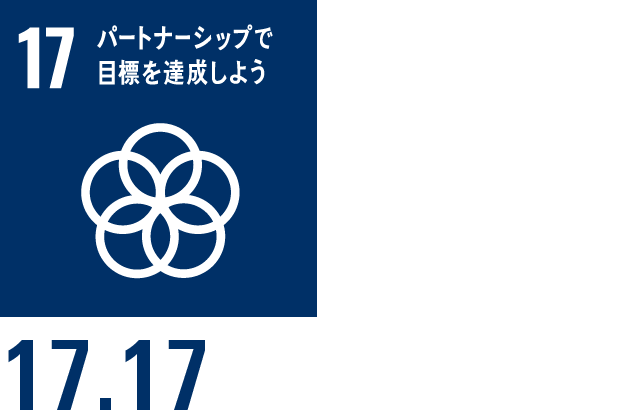
さまざまなパートナーシップの経験や資源戦略を基にした、効果的な公的、官民、市民社会のパートナーシップを奨励・推進する。
Encourage and promote effective public, public-private and civil society partnerships, building on the experience and resourcing strategies of partnerships
